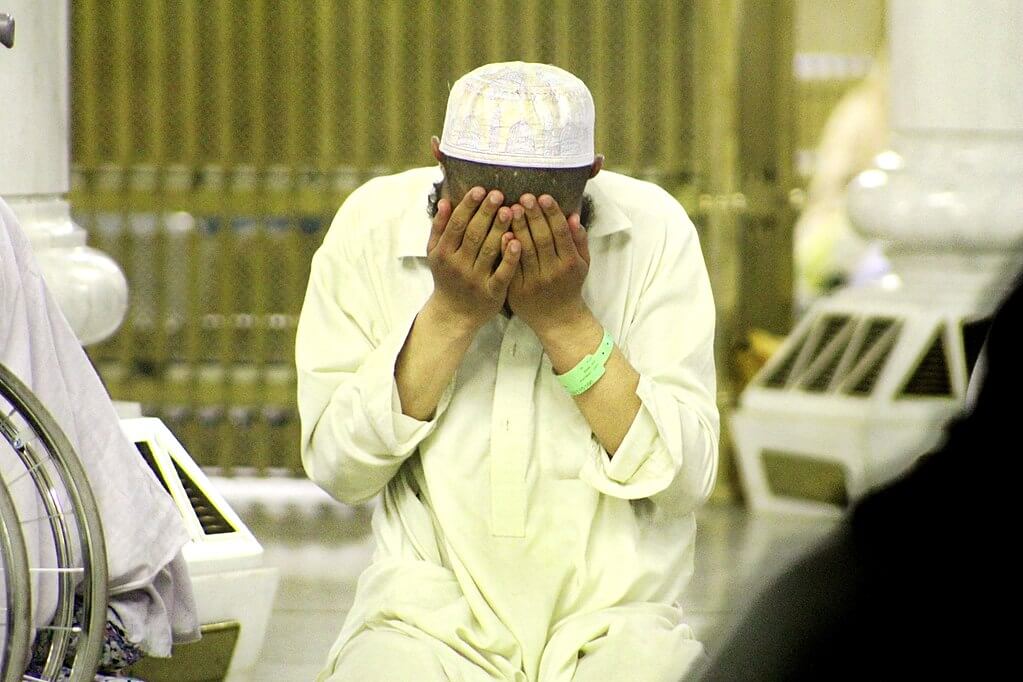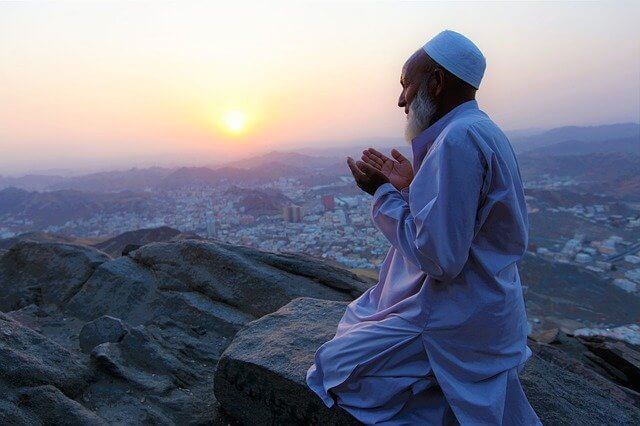
Since the past several weeks, local residents and religious organizations in Gurugram have been protesting against the administration’s order permitting Muslims to offer namaz at 37 designated public places. Namaz is being offered under heavy police protection. For record, protests were organized in 2018 and 2019 also. In 2018, the protesters had apparently stopped namaz at Cyber Park, IFFCO Chowk and a plot near Sahara Mall in Gurugram.
What the law says?
In 2017, the Supreme Court agreed to examine a fundamental question whether it is against secularism for the State to allot government land to a particular religious community to construct a place of worship? The matter had come up in appeal against an order of the Madras High Court in the case of Federation of Chennai Suburban (South) Welfare Association v. Muslim Cultural Association (2008). It is apparently still under consideration.
In July 2018, the Jyoti Jagran Mandal had challenged an order by the National Green Tribunal (NGT) denying it permission to hold a ‘jagran’ and ‘Mata Ki Chowki’ at a park in South-West Delhi. A Division Bench comprising Justices R.F. Nariman and Indu Malhotra was of the opinion that “such religious activity” cannot be held in public places. “We think that what the NGT has done is right,” Justice Nariman told the petitioner’s lawyer Fuzail Ayyubi.
The organisation had said that earlier, the NGT had allowed it to perform religious activities at Chanchal Park in Lajwanti area of Mayapuri. Later the permission was withdrawn, forcing the organisation to hold the religious function on road. The NGT said that the place needs to be preserved as a “lung space”. It had further noted that the public place is meant for the benefit of the residents of the area. The civic body had told the NGT that it has taken a policy decision not to give public parks for weddings or other day-to-day functions.
However, in view of the appeal raised a question of great constitutional importance as to whether such activities can be allowed in state-owned premises in view of the Constitution being secular in nature, the Hon’ble Chief Justice was requested to constitute an appropriate Bench to hear the aforesaid matter. It is also apparently still under consideration.
To any intelligent reader, the legal parallel with the issue at hand must be amply clear. Until such time that we get decisions on these, it can be presumed from the observations of the Court in the Jyoti Jagran Mandal case that no community has an unfettered or inalienable right to organize religious activities at public places unilaterally even with permission as it is fraught with the possibility of law and order problems.

In Union of India v. State of Gujarat & Ors (2009), a Division Bench of the Supreme Court had taken note of a news item published in TOI, Ahmedabad that 1200 temples and 260 Islamic shrines had encroached on public space. The Court banned all unauthorized construction on public streets, public parks or other public places etc. In respect of the unauthorized construction of religious nature which has already taken place, the state governments were asked to review them and take appropriate steps as expeditiously as possible.
Illegal acts committed by the protesters
The protesters are barking up the wrong tree. The district administration had permitted the Muslims to offer namaz in 37 locations. If they have any grievance against it, they must approach the administration of the courts. In fact, this is precisely what the ACP Sadar advised them to do.
How do the Muslims become responsible for it? If permission for namaz is given, it presupposes and it is understood that it must be allowed to be offered in peace—the order need not state it in so many words.
Irrespective of whatever they are doing, holding up placards, shouting slogans, or reciting religious stuff over the loudspeaker, amounts to encroachment upon the rights of others to practice their religion and as such, is an illegal act of highhandedness.
Their objections pertaining to security risks from Rohingyas etc. are simply ridiculous and, if they have any concerns, they must approach the police with justifications. If Rohingyas are living there, it is not for them to evict them; it is for the government to evict them. Alleged issues of traffic problems ensuing from the namaz or instances of sexual harassment are simple police matters and do not come within the purview of legal analysis—apparently, no complaint of sexual harassment has been filed yet. Further, in this analysis of legal dimensions, I decline to comment on any possible political design from either side in the matter. The political affiliation of the protesters is immaterial from a legal point of view.

What the Muslims must do?
Because they have been permitted by the administration to offer namaz at certain places and if some people are obstructing, the correct thing for them is to approach the administration that they are being obstructed in doing something for which the administration had permitted them. We are given to understand that the Gurgaon Nagrik Ekta Manch (GNEM) did meet the DCP HQ.
The real culprit is the order of the administration
It has been reported that 37 sites were designated by the district administration for namaz in the city after consultation with representatives of the Muslim community in 2018. If it is true, it means that others were not consulted. It has been reported that on September 29, Gurugram police faced massive criticism on social media after their official Twitter account tweeted that Hindu and Muslim communities, through mutual understanding, had decided on certain namaz spots at public places. Since apparently, there was no consultation, they subsequently deleted the tweet.
The administration can argue that when they had permitted, there was no objection from anybody. However, now when objections have been raised, it is incumbent upon them to review their order. A ward councillor has rightly pointed out that if a site has been designated, the residents of that area in the vicinity should also be consulted.
The administration cannot act in an arbitrary manner. The simple legal fact is that nobody has an inalienable right to undertake any religious or any other activity on a piece of public land, even if the land is lying vacant. The concerned demand has to be considered by the administration in view of many other consequent factors. A conflict can be avoided only by mutual consent and not by any administrative order. Citizens have every right to be aggrieved of any such order if it is made without their consent.
Suppose a bunch of boys were to materialize there right at the time of namaz and insist that they wanted to play cricket there on a sunny winter afternoon. Now, it cannot be argued that those offering namaz enjoy any greater ‘right’ over those desirous of playing some game. In fact, it has been reported that the protesters had been arguing that the namazis were encroaching upon public space that could be used by children for playing.
The protesters say that the sites designated in May 2018 by the district administration were for only a specific period of time. Sector 47 RWA president Sunil Yadav claimed that it was only for a day.
This is a very serious allegation and it is expected that the administration must immediately come clean on it. They have, to my knowledge, not responded to the specific allegations of consultation with the Hindus in 2018 and the number of days for which namaz was permitted. I was not provided with a copy of the aforesaid order by the administration.
Also Read:
Spirituality or religion- which road should you take?
Does any religion preach the use of violence?
While the administration would be within its powers to permit the use of public space for a private purpose (such as for various kinds of processions) for a limited period of time, permanent permission is indeed problematic.
Administration is not empowered to act beyond their brief
Having committed the mistake in issuing such an order, now the administration cannot afford to waste precious police manpower in providing security at the sites every Friday to the detriment of other policing tasks.
It is not for them to look into such issues that there is a dearth of places where people could offer namaz. We are given to understand that because of increased job opportunities, the Muslim population in Gurugram had touched about five lakhs but there are only two mosques, namely, Anjuman Jama Masjid, Sector 57 and Rajiv Chowk Masjid in New Gurugram—13 mosques in all in the entire area.
It is for the government to decide, as a policy matter, who could permit the construction of new mosques after following due procedure.
Ritu Raj, Shiv Sena spokesperson, Haryana, says the administration had in 2018 agreed to gradually bring down the number of designated namaz places and remove parks and public places from the list, but it was not done. This also needs clarification from the administration.
Countering his claims, Altaf Ahmad of the GNEM says the administration had brought down the number of open places for namaz in 2018 to 30-odd, including three mosques, from around 100 earlier. He also says that the Muslim community had applied for construction of mosques at three separate sites in Sector 43, 50 and 52 in 2016, however, after the interviewing process was completed, the administration rejected all applications. They have apparently applied again, failing which they must approach the courts.
The Noida example
In my considered view, the Noida administration had presented a better example when, in December 2018, they had prohibited workers of some 23 local factories from offering namaz in a municipality park. In fact, they allegedly made the park waterlogged after the order. Some days later, they denied permission to a Bhagwat Katha program also.
It has been reported that in two rounds of meetings held between the two parties with the initiative of the administration and the police, the local residents demanded that the place of namaz be shifted outside Sector 47 and suggested an open space near Subhash Chowk as an alternate. However, there is no agreement yet. The issue has the potential of snowballing and hence needs expeditious action observing the law.

